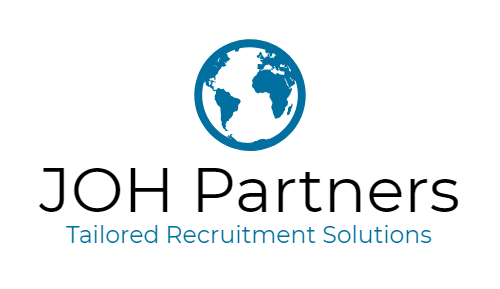Preparing for a final interview with a managing director can be nerve-wracking. It may be the last hurdle before landing your dream job, and you want to make a lasting impression. To help you succeed, we’ve compiled some expert tips and advice to ensure that you’re fully prepared for the interview.
In this section, we’ll discuss the common questions you may encounter during a final interview with a managing director. We’ll also give you valuable insights on how to prepare for the interview and what to expect during the final round.
Key Takeaways:
- Prepare for the interview by researching the company and senior management team
- Practice answering common interview questions
- Have a clear understanding of the job responsibilities and requirements
- Showcase your skills and suitability for the role by providing compelling answers
- End the interview with a strong conclusion and clear next steps
What to Expect in a Final Interview with a Managing Director
Preparing for a final interview with a managing director can be challenging. However, knowing what to expect can help you to feel more confident and prepared. In this section, we will explore some of the most common final interview questions and provide tips on how to expect in a final interview.
Behavioural Questions
Behavioural questions are frequently asked in a final interview with a managing director. The interviewer will ask questions such as “Can you describe a time when you had to handle a difficult situation with a colleague?” or “Tell me about a project in which you had to overcome a significant challenge?” These questions help the interviewer to assess your past performance and how you handle high-pressure situations.
Technical Questions
Technical questions are often asked in final interviews for roles that require specialized skills such as finance, engineering, or product management. These questions are designed to assess your knowledge of the industry, your specific skillset, and how they relate to the role for which you are interviewing. Ensure that you prepare for these types of questions by revising relevant industry jargon, technical skills, and any major trends or changes in the industry.
Leadership Role Questions
If you are interviewing for a senior management role, expect to be asked questions that will gauge your leadership and management abilities. Interviewers may ask questions such as “Can you describe how you manage conflict in a team setting?” or “Tell me about your management style and how it has evolved over time?” Be ready to provide examples of how you lead teams and any notable accomplishments you achieved.
Company Values Questions
Many companies prioritize their values and ask questions accordingly. Expect to be asked questions such as “How do you align with our company’s values of innovation and collaboration?” or “Tell me how you have demonstrated integrity in your previous role?” Ensure that you do your research on the company’s values and be prepared to answer how you personally align with them.
Tips for a Successful Final Interview with a Managing Director
If you have made it to the final interview with senior management, you are likely one of the top candidates for the position. To help you make the best impression, we have compiled a list of tips:
Research the Company and its Senior Management Team
Make sure you have a thorough understanding of the company’s mission, values, and culture. Research the senior management team and the interviewer to get a better understanding of their role within the company. This will help you tailor your answers to the specific needs of the organization.
Practice Your Answers to Common Interview Questions
Prepare for the interview by practicing your responses to commonly asked questions such as ‘Why are you interested in this position?’ or ‘What is your greatest strength?’ This will help you present your best self during the interview and showcase your skills and abilities.
Demonstrate Your Value to the Organization
Highlight your achievements and accomplishments in previous roles that directly relate to the position you are interviewing for. Show how your skills and experience can contribute to the success of the organization and its goals.
Expert tip: Be confident, articulate, and enthusiastic throughout the interview to make a strong impression on senior management.
By following these tips, you can confidently prepare for your final interview with senior management. Remember to be yourself, stay positive, and demonstrate why you are the best fit for the role.
Questions to Ask in a Final Interview with a Managing Director
Asking thoughtful questions during a job interview can demonstrate your preparedness, interest and understanding of the company. In a final interview with a managing director, it’s essential to have insightful and meaningful questions to ask. Not only will it help you gather vital information, but it will also show that you’re taking the opportunity seriously and that you’re interested in the position. Here are some questions to ask in a final interview with a managing director:
- What are the company’s long-term goals, and how does this role contribute to achieving them?
- Can you discuss the training and development opportunities available for employees in this position?
- What sets your company apart from the competition, and how do you retain your competitive edge?
- Can you describe a situation where an employee in this role has exceeded expectations or contributed significantly to the company’s success?
- What systems are in place to provide feedback and support for employees in this role?
- What are the challenges facing the company and this role in the coming year?
- How would you describe the company culture, and how does it support employee growth and development?
- What motivated you to join the company, and what keeps you excited about the work you do?
- What are the most important qualities you’re looking for in the ideal candidate for this role?
These questions can provide an opportunity for you to demonstrate your knowledge of the company, express your interest in the role, and gain valuable insights to help you make an informed decision about the job. Always be professional, polite, and engaged during the interview process, and remember that you’re also assessing whether the company and position are a good fit for you.
Conclusion
In conclusion, preparing for a final interview with a managing director can greatly increase your chances of a successful interview and achieving your career goals. Remember to research the company and senior management, practice your answers to common interview questions, and demonstrate your value to the organization.
If you found this article helpful, please explore more articles and resources to further enhance your interview skills and increase your chances of a successful interview. Good luck in your career journey!
SEO Keywords: explore more articles, successful interview, career goals
FAQ
What is a final interview with a managing director?
A final interview with a managing director is the last stage of the interview process, where you will have the opportunity to meet with a senior-level executive within the company. This interview is usually conducted after you have successfully passed previous rounds of interviews and may involve more in-depth questions about your skills, experiences, and fit for the role.
What kind of questions should I expect in a final interview with a managing director?
In a final interview with a managing director, you may encounter a mix of behavioral, situational, and technical questions. The interviewer may also ask about your long-term career goals, how you can contribute to the company’s success, and how your skills align with the organization’s strategic objectives.
How should I prepare for a final interview with a managing director?
To prepare for a final interview with a managing director, it is important to thoroughly research the company and its senior management team. Familiarize yourself with the company’s mission, values, and recent achievements. Practice your answers to common interview questions and have specific examples ready to support your skills and experiences. Additionally, review the job description and align your answers with the role and the company.
What are some tips for a successful final interview with a managing director?
To excel in a final interview with a managing director, it is essential to demonstrate confidence, professionalism, and a genuine interest in the company and the role. Show your curiosity by asking thoughtful questions about the organization, its future plans, and potential challenges. Make sure to highlight your unique skills and how you can add value to the company. Additionally, listen attentively, maintain good eye contact, and showcase your ability to communicate effectively.
What questions should I ask in a final interview with a managing director?
It is important to ask questions that demonstrate your interest in the role, your understanding of the company, and your desire to contribute to its success. Some appropriate questions to ask in a final interview with a managing director include inquiring about potential growth opportunities within the company, discussing the executive team’s vision for the future, and asking for feedback on how you can make an immediate impact if hired. Additionally, you can ask about the company’s culture, values, and the management style of the senior leadership.
How can I make a positive impression during a final interview with a managing director?
To make a positive impression during a final interview with a managing director, it is important to be well-prepared, professional, and enthusiastic. Show your interest in the role and company by asking thoughtful questions and actively listening to the interviewer. Share your unique career story and how it aligns with the company’s goals. Demonstrate your professionalism by dressing appropriately, maintaining good body language, and showcasing your strong communication skills. Finally, showcase your knowledge of the industry and your potential value to the organization.





